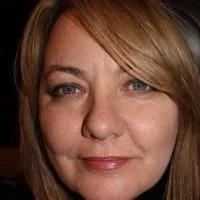Reverse Mortgage
The definition of a reverse mortgage is important for homeowners 62 and older who want to supplement their retirement income. What exactly is a reverse mortgage? Some say that it is the strange situation - and probably the only one - in which a lender pays the borrower. Well, this definition of a reverse mortgage is confusing and might not be entirely true. In fact, the lender is looking at the borrower’s home equity and buys back his/her part in the home. Reverse mortgages should be taken into consideration as part of a retirement plan, especially if you live in a city with very expensive homes, such as the city of Scottsdale, or any city on the West Coast. In this case you must look for professional help and find real estate agents near your location.
So, those who opt for a reverse mortgage, actually give their property to the bank without losing the property. These homes are not yet bank owned (REOs) until the residents die or move out. If they move out and fail to pay the mortgage back, then the property may be sold by the bank. If they die, their heirs still have a chance to keep the house if they repay the loan or sell it to pay off the loan.
There are many reverse mortgage providers, but probably the most popular one is the HUD FHA Home Equity Conversion Mortgage (HECM). To qualify for it, borrowers must use it for their primary residence. There are three ways in which homeowners can cash out their equity. First, they can opt to receive monthly payments. Secondly, they may get a lump-sum, and third, they can maintain a line of credit.
Not all buyers may benefit from a reverse mortgage, but borrowers who do get a reverse mortgage enjoy a few advantages:
- They don’t have to leave the house.
- They have an extra income for emergencies.
- They don’t have to make any mortgage payments.
- They can pay off their initial mortgage and increase their disposable income.
- No minimum credit score required.
Of course, a reverse mortgage has its disadvantages, too:
- The balance keeps growing over time unless they make payments.
- Borrowers owe interest on the loan.
- A reverse mortgage has closing costs.
- Heirs inherit a property with a lien.
Even homeowners who have paid off their homes can access a reverse mortgage. This step is definitely important in retirement planning. Those who had taken out a 30-year home loan before they turned 32 might have their homes paid off by now. Home buyers who purchased a home after their 32nd birthday still owe money on their mortgage, but their home equity is more than 50% - the minimum required for such a loan. So, through a reverse mortgage, lenders seem to return the money paid for the house back to the owners but it also charges interest for it. You may think that it’s absurd, but in fact, the bank is only charging rent. However, is it fair to do so, as long as the bank doesn’t assume the property taxes, the homeowners’ insurance, and the cost of any home repair? The bank is charging a kind of “rent” but it doesn’t take on the responsibilities of a landlord. That’s why the public does not have a good opinion about them and finds reverse mortgages a big scam, especially because 40% of the borrowers are now in foreclosure, while, according to the USA Today, almost 100,000 loans have failed.
Yes, a reverse mortgage can be foreclosed by the lender if one of the following happens:
- The borrowers can’t stay current on their property taxes or insurance.
- The property deteriorates and the residents don’t have enough funds to maintain the house in a reasonable condition.
- The borrowers move for whatever reason and the house no longer serves as the primary residence.
- The property is sold or the owner transfers title of the property.
Popular Mortgage Terms
The standards imposed by lenders in determining whether a borrower can be approved for a loan. These standards are more comprehensive than qualification requirements in that they include ...
A bundle of mortgage characteristics that lenders view as comprising a distinct category. The characteristics used include whether it is an FRM, ARM, or Balloon, the term, the initial ...
A borrower who submits applications through two loan providers, usually mortgage brokers, without their knowledge. Home purchasers sometimes submit more than one loan application as a way ...
Every ARM is tied to an interest rate index. An index has three relevant features:availibility, level, volatility. All the common ARM indexes are readily available from a published source, ...
Assuming responsibility for someone else's payment obligation in the event that that party defaults. ...
The definition of an assumable mortgage is what happens when a buyer assumes or takes over a mortgage that the seller contracted. This is a type of financial arrangement that passes an ...
Loan applications that are withdrawn by borrowers, because they have found a better deal or for other reasons. ...
An independent contractor who offers the loan products of multiple lenders, called wholesalers. Mortgage brokers do not lend. They counsel borrowers on any problems involved in qualifying ...
The highest rate possible under an ARM contract; same as 'lifetime cap.' It is often expressed as a specified number of percentage points above the initial interest rate. ...

Have a question or comment?
We're here to help.